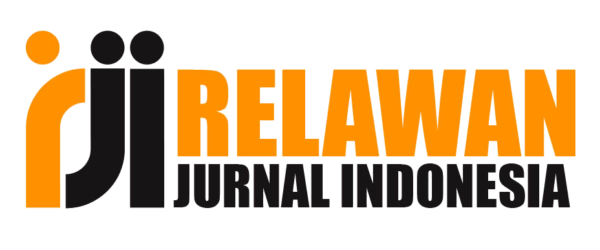Analisis kemampuan berpikir kritis pada praktikum fisika medan magnet dengan model PODE berbasis Vlab
Abstract
Practicum activities conducted online cause many obstacles such as difficult access to the use of laboratory tools, limited practicum objects in real terms that result in a lack of deepening of the material. So that a new learning model is needed that is suitable to support online practicum activities through the Virtual Laboratory. This research aims to find out how the effect of the PODE (Predict-Observe-Discuss-Explain) learning model based on Virtual Laboratory or VLab on critical thinking skills on magnetic field physics practicum activities. The method used in this study was descriptively quantitative with one group pretest-posttest in control classes and experimental classes. Based on the results of data processing, the average N-Gain value in the control class is 45.37 and the experimental class is 64.82 with a significance result above 0.05. Based on the results of the analysis of the research data, it can be concluded that there is a positive influence in the application of a virtual laboratory-based PODE learning model to critical thinking skills in magnetic field physics practicum activities by physics education students.
Keywords
Full Text:
PDF (BAHASA INDONESIA)References
Dewi, I. S., & Utami, R. P. (2019). Profile Enhancement Students’ Critical Thinking Skills of 7th Grade Junior High School in Natural Science Learning with Environmental Polution Subject Assisted by PODE worksheet. Science Education and Application Journal, 1(2), 56-61.
Doyan, A., Makhrus, M., & Zamrizal, W. (2021, July). Development of Modern Physics Learning Devices Using Inquiry Learning Model Assisted with Virtual Media to Improve Student Cognitive Learning Result. In 5th Asian Education Symposium 2020 (AES 2020) (pp. 213-216). Atlantis Press.
Fiqry, R. (2021). Persepsi mahasiswa terhadap pemanfaatan aplikasi sensor smartphone untuk praktikum. JIIP-Jurnal Ilmiah Ilmu Pendidikan, 4(2), 103-108.
Irfan, M. (2017). Development of learning model PODE (Predict, Observe, Discuss, Explain) in the primary school. International Journal of Social Science and Humanities Research, 5(3), 491-498.
Irfan, M., & Syahrani, S. (2018). Profil keterampilan proses sains siswa kelas V SD Inpres Unggulan BTN Pemda Kota Makassar melalui penerepan model pembelajaran predict observe, discuss, explain (PODE). Publikan Jurnals UNM, 8(1), 7-12.
Islahudin, I., Sabaryati, J., Zulkarnain, Z., & Soeharto, S. (2020). Design of work instruction (WI) electronic workbench-assisted electrical measuring devices to improve the internship concept of students in basic electronic II course. JIPF (Jurnal Ilmu Pendidikan Fisika), 5(2), 98-106.
Nurhaddi, R. P., & Budiyanto, M. (2020). Pembelajaran ilmu pengetahuan alam berbasis high order thinking skills (HOTS) untuk menghadapi era society 5.0. Pensa: E-Jurnal Pendidikan Sains, 8(3), 282-287.
Retnosari, D., & Widodo, W. (2018). LKS PODE (Predict, Observe, Discuss, Explain) untuk meningkatkan keterampilan berpikir kritis siswa. Pensa: E-Jurnal Pendidikan Sains, 6(02).
Royani, I., Mirawati, B., & Jannah, H. (2018). Pengaruh model pembelajaran langsung berbasis praktikum terhadap keterampilan proses sains dan kemampuan berpikir kritis siswa. Prisma Sains: Jurnal Pengkajian Ilmu dan Pembelajaran Matematika dan IPA IKIP Mataram, 6(2), 46-55.
Sari, S.R.Y.W., & Prihandono, T. (2015). Aplikasi medan magnet extremely low frequency (ELF) 100 100μT dan 300μT pada pertumbuhan tanaman tomat. Jurna Pendidikan Fisika, 4(2), 164-170.
Satoglu, S. I., Ustundag, A., Cevikcan, E., & Durmusoglu, M. B. (2018). Industry 4.0: Managing The Digital Transformation. Springer
Setiyaningsih, A., Rahmawati, R., & Danawarih, S. (2021). Studi eksplorasi kegiatan praktikum fisika saat pandemi Covid-19. Seminar Nasional Psikologi UM (Vol. 1, No. 1, pp. 191-199).
Simbolon, D. H. (2015). Pengaruh model pembelajaran inkuiri terbimbing berbasis eksperimen riil dan laboratorium virtual terhadap hasil belajar fisika siswa. Jurnal Pendidikan dan Kebudayaan, 21(3), 299-316.
Yulianto, E., Sopyan, A., & Yulianto, A. (2014). Penerapan model pembelajaran poe (predict-observe-explain) untuk meningkatkan kemampuan berpikir kritis dan kognitif fisika SMP. UPEJ Unnes Physics Education Journal, 3(3). 1-6.
Zubaidah, S. (2018, October). Mengenal 4C: Learning and innovation skills untuk menghadapi era revolusi industri 4.0. In 2nd Science Education National Conference (Vol. 13, No. 2, pp. 1-18).
DOI: https://doi.org/10.17509/wapfi.v7i1.42503
Refbacks
Copyright (c) 2022 Yunissa Cesariyanti, Annisa Nurul Fitriani, Annisa Rohmatul Hasanah, Annisa Nurhayati, Riki Purnama Putra, Rena Denya Agustina, Adam Malik

This work is licensed under a Creative Commons Attribution-ShareAlike 4.0 International License.
The Journal Wahana Pendidikan Fisika http://ejournal.upi.edu/index.php/WapFi/ is licensed under a Creative Commons Attribution-ShareAlike 4.0 International License
The Journal WaPFi (Wahana Pendidikan Fisika).
All rights reserverd. pISSN 2338-1027 eISSN 2685-4414
Copyright © Faculty of Mathematics and Science Education (FPMIPA) Universitas Pendidikan Indonesia (UPI)










